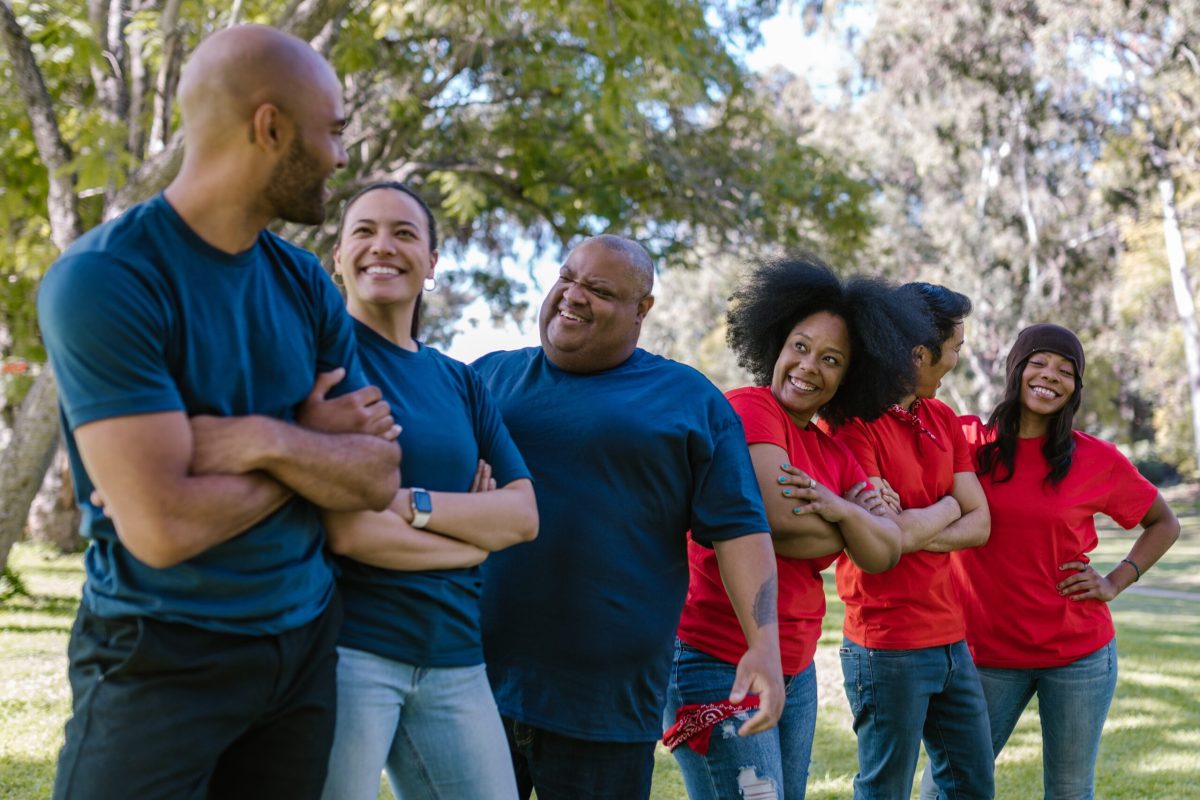Article
How to Help Your Church Find Evangelistic Opportunities
How can we connect our people with outreach opportunities that make a difference? Here are 7 ways to make evangelism happen within your community.

Engaging the Unchurched
As much as we’d like it to happen, evangelistic opportunities aren’t just knocking down the doors of churches in many of our communities. Especially not in places with large percentages of those who are spiritually disconnected from Jesus. One of my favorite activities to do with mission teams visiting from more churched cities is to paint a picture of my neighborhood, where 95% of people are spiritually disconnected from Christ. I begin to tell the stories of the 10 closest homes to my own family’s home in Denver, where not one is a follower of Jesus outside of our family. Here’s how I like to engage those mission teams with some questions.
One activity I take them through is listing their favorite pastor to listen to, their favorite worship band to worship to, and then their favorite church activity to partake in. As we go around the room, there’s commonality. However, from there, I ask them whether they think our family’s neighbors know any of those pastors, worship teams, or activities. The answer is a resounding no, which means that if our church is looking to evangelistically engage in the ways listed by the mission team, we’re setting ourselves up for failure!
So, how do you engage in evangelistic opportunities in spiritually disconnected cities? Great question! Finding evangelistic opportunities in unchurched cities requires a strategic and intentional approach by the church. There is no overnight success for this, no cookie cutter approach that works in every city, and certainly no silver bullet. This will take a lot of trial and error, but given enough time, you’ll find the exact, right opportunities that work for your community! So, here are some steps that can help.
1. Prayer
I know, this seems simple and obvious, but you would be surprised how many people ask the advice of others before they ask the advice of the Lord. If you’re really going to reach the people in your community, don’t forget that God called you to that specific community for a reason! If He’s the One who called you, He’s certainly the One who knows how to reach those in your community whom He sent you to reach. Seek God’s guidance and direction through prayer. Ask the Holy Spirit to reveal specific opportunities and to open doors for effective evangelism in the city. Involve your church people or leadership in a collective season of prayer, specifically seeking God’s heart for the unchurched communities in your midst.
2. Community Assessment
Our community has an average age of 33.4, 2 kids per home, in the wealthiest zip code in our state, where 43% have a doctorate or masters level degree, 72% are Caucasian, 12% are Hispanic, 10% are African American, and the rest are Pacific Asian. As I stated earlier, 95% of them are spiritually disconnected from Jesus, and their core motivators are success, experience, belonging, and purpose. Over the past four years since we launched, community assessment has been a core value for our team. That’s not so we can say that we know our community, but so that we do know and make decisions based on our community’s needs. Take your team or leadership and conduct a thorough assessment of the unchurched city. Doing will help you understand its demographics, cultural dynamics, and specific needs. Research the local community, engage in conversations with residents, and identify areas where the church can make a meaningful impact. Some impactful resources for you to do this are already created through our great partnership with SEND Relief. You can access their ministry guides here.
3. Relational Engagement
There’s no better evangelistic opportunity than a personal relationship with someone. Of all the ways we are able to invite people in to what God is doing, personal invitation is still the number one reason people engage with church. Encourage your church members to intentionally build relationships with their neighbors, coworkers, and friends who are unchurched. This can be done through hospitality, acts of kindness, community involvement, and genuine care for their well-being. Developing trust and authentic connections is crucial for effective evangelism. One primary way we teach our leaders to engage is through third-space environments. Third-space environments are informal, non-work or non-home settings that provide a welcoming and relaxed space for people to gather, connect, and build relationships. They can include coffee shops, parks, community centers, or other public places where individuals can engage in meaningful conversations and foster a sense of community.
4. Relevant Outreach Programs
Once you have a firm grip on the specifics of your community, you and your team can then begin to think through opportunities that would work for your community and context. You can develop outreach programs and initiatives that address the specific needs of the unchurched community. This could include food drives, clothing distributions, tutoring programs, job skills training, or partnering with local community organizations. You and your team can demonstrate God’s love through practical means, which opens doors for spiritual conversations.
5. Collaborative Partnerships
One key component is that you and your church not compete with your community, but rather come alongside your community. This not only paints a healthy picture of what the church is about, but it can also save you time and resources. If your community already has movie nights, concerts, block parties, and more, then see how you can sponsor them instead of creating your own movie nights, block parties, and more. You can even seek opportunities for collaborative partnerships with other churches, organizations, or community leaders who share a common vision for reaching the community and creating unity within it. By pooling resources, knowledge, and efforts, churches can have a more significant impact and effectively engage the city together.
6. Bridge Events
One activity our team thinks through a lot are bridge events. Bridge events are intentional events designed to create connections and build relationships with unchurched individuals. They serve as a bridge between the church and the community, providing opportunities for people to engage in a non-threatening environment, experience God’s love, and explore faith in a relevant and meaningful way. These are events the community would already engage in. This way, it is not a big ask for them to attend. This could include community festivals, concerts, sports events, egg scrambles, Christmas Villages, or relevant class type of seminars that discuss questions that spiritual seeks are asking (i.e. Alpha). This easily provides avenues for people to build relationships, and if your church is relational, these individuals will be evangelistically trained to hear the message of Christ and respond if they desire.
7. Discipleship and Follow-up
All of these opportunities will help you make strides in your community with those who are spiritually disconnected. However, if there is no system or process set up to gather information and follow up with members of your community, then the hard work put in to these opportunities could go to waste. Alongside your team, develop a discipleship strategy to nurture and support visitors and new believers who come to faith through these evangelistic efforts. Provide mentorship, small groups, and discipleship programs that help individuals grow in their faith and become active members of the church community.
Stay Faithfully Engaged
Church leader, please remember that effective evangelism requires a genuine love for people, cultural sensitivity, and an ongoing commitment to building relationships. This is not an overnight, silver bullet process. However, also remember: I God has called you to that community, then you can faithfully remain there and try new opportunities until you find the ones that work perfectly. The church should be intentional, patient, and persistent in their efforts to reach the unchurched communities, trusting in the transformative power of the gospel and the leading of the Holy Spirit.




